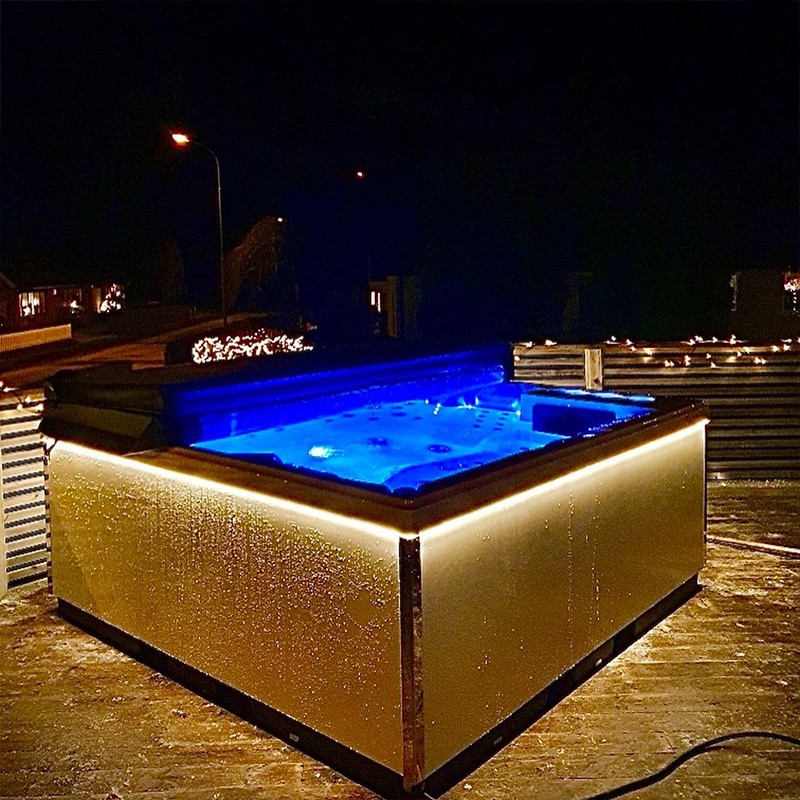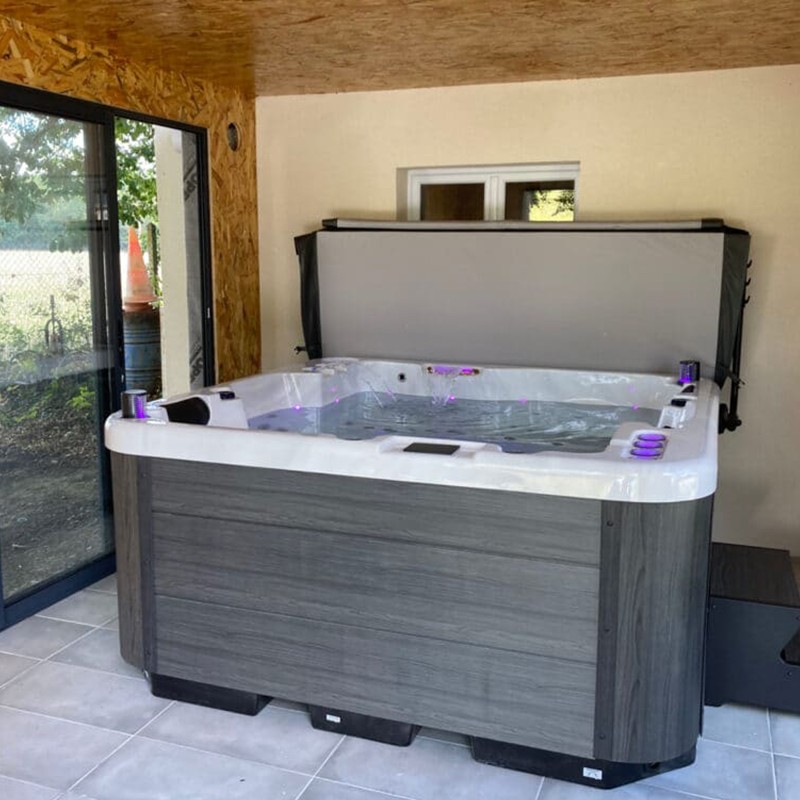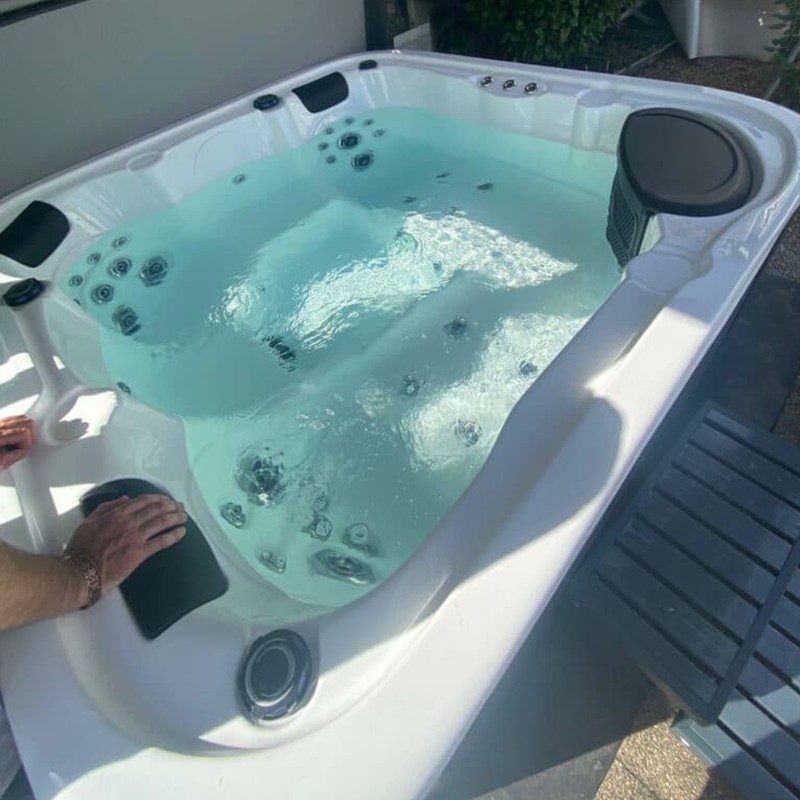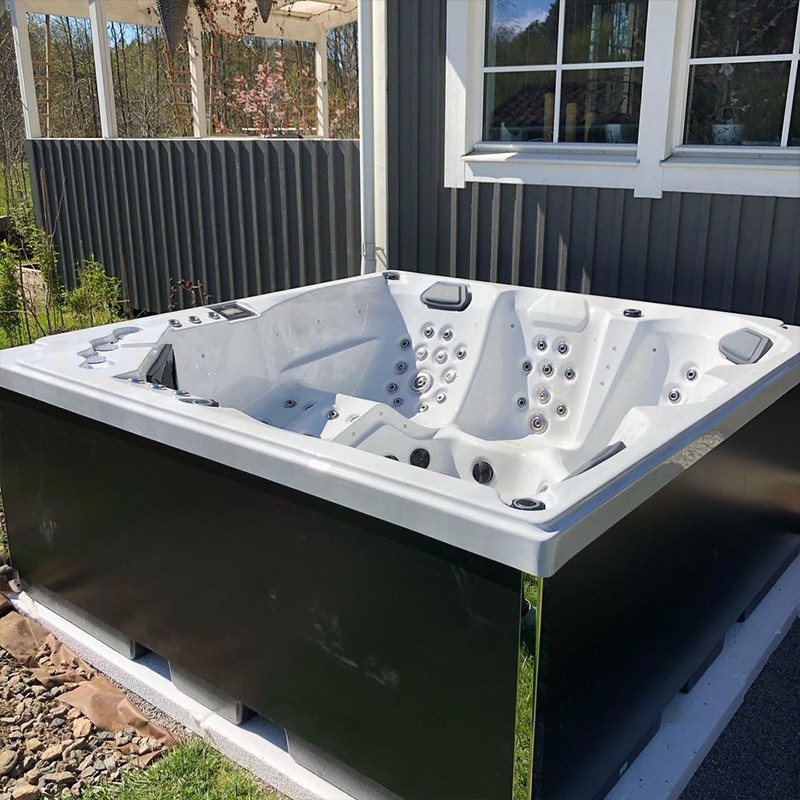
Do hot tubs cause Legionnaires' disease?
2024-07-24 15:30Hot tubs have become a common amenity in homes and hotels. They are loved for the comfort and relaxation they bring. However, there is growing concern and research about the health issues that hot water tubs may cause, especially Legionnaires' disease. Legionnaires' disease is a serious lung infection caused by Legionella bacteria.
This article will explore whether hot tubs can cause Legionnaires' disease from multiple perspectives, including scientific research, expert opinions, real-life cases, and preventive measures, and provide comprehensive insights and suggestions.

What is Legionnaires' disease?
Legionnaires' disease is a serious pneumonia caused by Legionella bacteria. In 1976, a large-scale pneumonia outbreak occurred at a veterans' convention in Philadelphia, USA, and was later confirmed to be caused by a new bacteria, which was named Legionella. Since then, Legionnaires' disease has become widely known.
Legionella bacteria are mainly found in freshwater environments such as lakes, rivers and reservoirs, but can also multiply and spread in artificial environments such as air conditioning systems, water pipes, water heaters and hot bathtubs. Legionnaires' disease enters the body through inhalation of water mist or aerosols containing the bacteria, causing infection. Symptoms include high fever, cough, difficulty breathing, muscle pain and headache, and in severe cases, death.
What is the connection between hot tubs and Legionnaires' disease?
The design and use characteristics of hot tubs make them an ideal environment for the growth of Legionella. Legionella grows most vigorously in the temperature range of 25-45 degrees Celsius, and the water temperature in hot tubs is usually within this range. In the water circulation system of hot bathtubs, water flows through pipes and nozzles, where biofilms are formed, and Legionella can reproduce in biofilms. In addition, when using hot tubs, the spray and vortex of water will produce a large amount of aerosols. If these aerosols contain Legionella, they may be inhaled into the human body and cause infection.

Scientific research and data analysis
In order to understand the connection between hot tubs and Legionnaires' disease, many scientific studies have conducted detailed investigations and data analysis.
Study 1: Legionella in hot tubs
A study tested multiple public and private hot bathtubs and found that about 30% of hot tub water samples contained Legionella. This shows that hot tubs do have the risk of Legionella growth.
Study 2: Legionnaires' disease outbreaks
In the past few decades, many Legionnaires' disease outbreaks have been associated with hot tubs. For example, in 2006, a hotel in the United States had an outbreak of Legionnaires' disease, and the investigation found that the hotel's hot tub was the main source of bacterial transmission.
Study 3: Biofilm formation
The study also found that the inner wall of the hot tub pipe is prone to biofilm formation. This biofilm is composed of bacteria and other microorganisms, has strong adhesion and tolerance, and is difficult to completely remove with conventional cleaning. These biofilms provide an ideal breeding environment for Legionella.

Expert opinion
Professor Li, a public health expert, said: "Hot tubs are indeed prone to Legionella due to the characteristics of their water temperature and water circulation system. Regular cleaning and disinfection are important measures to prevent the spread of bacteria."
Microbiology expert Dr. Wang pointed out: "Legionella grows rapidly in warm water environments, especially after the formation of biofilms, it is more difficult to remove. Users should pay special attention to the sanitation management of hot tubs."
Actual cases of infection with Legionnaires' disease
In order to more intuitively understand the connection between hot tubs and Legionnaires' disease, we collected some actual cases and user experiences.
Case 1: Hotel infection incident
Case background: In 2012, a businessman developed symptoms such as high fever and cough after using a hot tub in a luxury hotel, and was subsequently diagnosed with Legionnaires' disease. The investigation showed that the hotel's hot tub was not effectively disinfected, and high concentrations of Legionella were detected in the water sample.
Case 2: Home infection incident
Case background: In 2018, a housewife developed breathing difficulties and muscle pain after using a hot tub at home. She was sent to the hospital for treatment and was diagnosed with Legionnaires' disease. Doctors pointed out that the cleaning and maintenance of the home hot tub were insufficient, leading to bacterial growth.
Case 3: Public bath infection incident
Case background: In 2020, a Legionnaires' disease epidemic occurred in a hot spring resort in Japan, and many people were infected. The investigation found that the resort's public hot bathtub was not disinfected as required, and Legionella was detected in the water quality.
How to prevent Legionnaires' disease when using a hot tub?
As a consumer, when checking into a hotel, understand the cleaning and disinfection procedures of the hot tub and choose a hotel with good hygiene management. If conditions permit, you can use your own cleaning supplies to simply clean the hot water tub before use. When using a hot tub, if you feel that the water has an odor or you feel unwell, stop using it immediately and report the situation to the hotel or relevant personnel. The most important thing is to understand the symptoms of Legionnaires' disease. If you have a high fever, cough, difficulty breathing and other symptoms after using a hot tub, you should seek medical attention in time.

Conclusion
On the whole, hot water tubs may indeed become a breeding ground for Legionella to grow and spread, leading to Legionnaires' disease. However, this risk can be effectively reduced through strict hygiene management and scientific cleaning and disinfection methods.
Hotels and public places should assume the responsibility of ensuring the hygiene of hot tubs, and consumers should also understand the relevant risks and take appropriate preventive measures to protect their own health.
For users of hot water tubs, understanding the possible health risks and taking effective preventive measures are the key to ensuring safe enjoyment. While enjoying the comfortable experience brought by the hot tub, scientifically and rationally managing its hygiene conditions can truly achieve the coexistence of health and comfort.
